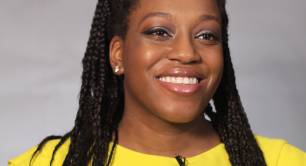No men allowed: How useful are women’s-only business networks?
There are numerous gender-specific networks and schemes to support women in business, including our very own Women in Social Enterprise (WISE100) created in partnership with NatWest. But how important is it to get together without men in the room? Pioneers Post discuss with a group of women leaders we gathered for a recent WISE100 dinner in London.
We have been hosting networking events for the NatWest WISE100 for several years now – and in that time, the discussions have often turned to how useful it really is to remove men from such spaces. For some, separating genders feels old-fashioned – while others question how productive it is to eliminate half the population from discussions or opportunities.
In response to this, Pioneers Post and NatWest this year created a new category in our WISE100 list and awards, with all genders encouraged to apply for the ‘Women’s Champion’ category. But do women's-only networks and awards still have a place in today's society – or should we be going even further to include all genders in every space?
Bonnie Chiu, managing director, TSI Consultancy speaking at a WISE100 dinner in London
Bonnie Chiu, managing director at The Social Investment Consultancy (TSIC) and founder of social enterprise Lensational, is an advocate for women’s-only networking spaces – and cites research that found women involved in gender-exclusive networks are more likely to progress further in their career than others.
“There are statistics that show the business case,” she says, speaking at a NatWest WISE100 dinner in London last month, which brought together 23 women leaders from social enterprises including Chocolate Films, Soul of Africa, London Early Years Foundation and Migrateful.
I later dug into the research Chiu refers to, which she has recently written about for Forbes. Numerous studies have shown that graduates from all-girls’ schools are more likely to be academically confident than those from mixed-sex schools. And researchers have also found that women are 2.5 times more likely to land positions of higher authority when their inner circles are women-dominated (while the gender composition of inner circles made no difference for men).
Women are 2.5 times more likely to land positions of higher authority when their inner circles are women-dominated
Why might this be? One reason could be that women use different conversational techniques when building networks: “Women connect in a different way to men,” says Chiu. She recently found more research showing that children learn to communicate differently among their own sex from an early age: with girls focusing more on building rapport, while boys focus on status.
From left to right: June O'Sullivan, CEO, London Early Years Foundation (LEYF); Jenny Holloway, CEO, Fashion Enter Ltd; Diane Cheung, marketing manager, CLARITY & Co; Megan Peat, CEO, NatWest/RBS Social & Community Capital
For Caroline MacFarland, founder of think thank Common Vision, all-women networks aren’t just about catering for different gender behaviours, but are an important way of rebalancing the opportunities and networks that men have benefited from for centuries.
“They’ve got these manufactured networks where they are put in rooms with people they don’t know and told to build relationships. And I don’t think women are put in those positions as much – and that’s why it’s important.”
And men should not feel excluded by these groups, says MacFarland: “ It’s not like everyone [in this room] is only going to mix with women from now on.”
Jenny Holloway, founder of social enterprise Fashion Enter Ltd, is sceptical about too much focus on glass ceilings. “We’re all individuals, so just be who you are and be proud. You can make your career a success. I don’t feel like I need to say: ‘I’m a woman’.”
But there may be a good argument for creating networks with a specific emphasis on supporting other women. For Chiu, finding women role models has been challenging in the past “– and when I do find them, they’re not approachable.” After speaking to peers who have experienced the same thing, she has concluded that this might be because women sometimes create a competitive rather than collaborative atmosphere with each other.
Esther Foreman, CEO at The Social Change Agency, speaking at the dinner
MacFarland echoes this: “The people who have given me the biggest confidence knocks in my career have been women.” Once, she spoke on a panel for a podcast recording, where she was “not only the only woman on the panel, but the only person under 60, who didn’t have ‘Professor’ or ‘Doctor’ or ‘Lord’ in front of their name.” The chair of the panel was a well-known woman journalist, but “she didn’t say hello, or look me in the eye, and interrupted almost every point I made, acting very differently with the men. If I'd had that experience earlier in my career I'd have been completely put off public speaking.”
Giving younger people the time of day is one way we can make a difference
But – she acknowledges that perhaps she only noticed that behaviour because that person was a woman: “It's not like I was expecting special treatment, but maybe I have a higher expectation of other women to be more supportive in general.” Still, some actions are simple to implement yet can make a real difference, adds MacFarland. While publicly championing gender equality is necessary, “being inclusive and supportive of people we meet at events, and giving younger people the time of day are ways we can all make small differences to the professional experiences of women.”
Caroline MacFarland, founder at Common Vision speaks to Pioneers Post
Find dozens more interviews, features and business insights from leading women in social enterprise in our WISE100 collection.
Listen to Bonnie Chiu’s provocation from the dinner in full above – where she poses some big questions about how women in social enterprise can be more supportive of each other, and reveals her own personal journey of thinking through her position as a woman in business.
Photo credits: Sasha Gallick.



